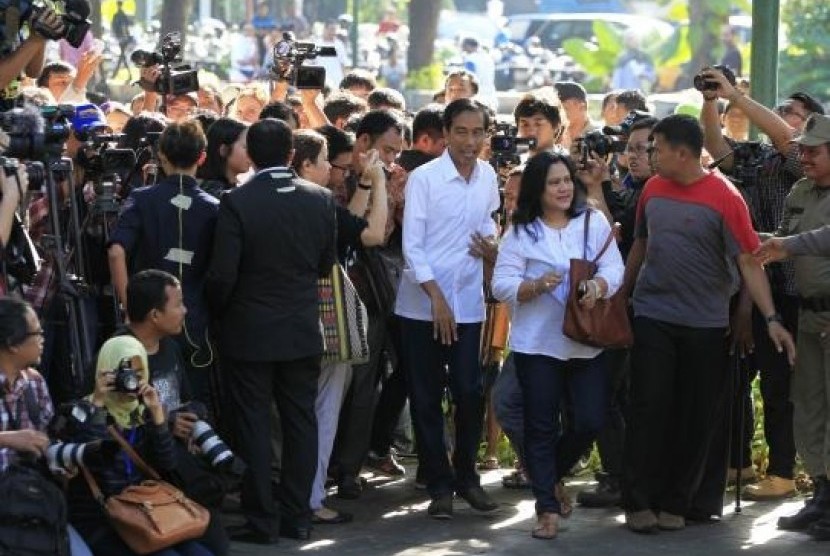REPUBLIKA.CO.ID, JAKARTA - An unconvincing election win by Indonesia's main opposition party means it will likely have to seek allies to nominate its candidate for a July presidential vote, increasing the prospect of political uncertainty in Southeast Asia's biggest economy.
Investor disquiet at the likelihood of lengthy jockeying and a much tougher race to the presidency for the popular candidate of the Indonesian Democratic Party-Struggle (PDI-P) took its toll on Jakarta share prices which were down 3.18 percent by midday.
That is about the same percentage that they jumped after the party announced last month that it was nominating Jakarta governor Joko "Jokowi" Widodo as its candidate for the July 9 presidential election.
The rupiah initially slipped but later recovered. Both shares and the rupiah are still around the highest levels since the latter part of 2013.
"The next step for us is to look at which other parties we can cooperate with," PDI-P vice secretary general Eriko Sotarduga said on Thursday.
"We are talking with many parties right now."
The party won just less than 20 percent of the votes in Wednesday's parliamentary election, according to initial results, the biggest of any party but below a threshold needed for a party to nominate a presidential candidate on its own.
However, it could be some time before the official result is known and there is still a chance the party will have won enough seats to nominate Jokowi without the help of another party.
"It's important to say that we're not going to build a coalition just based on transactional politics, for example they give us their support and we give them something in return," Sotarduga said.
"We also don't want to build a big coalition because we've seen for the last few years that a big coalition with too many partners can be very ineffective."
He was referring to the broad coalition government of outgoing President Susilo Bambang Yudhoyono which has been widely criticized for ineffective leadership and whose ruling Democratic Party saw its votes halve on Wednesday.
Ten parties qualified for seats in parliament, opening up the possibility of various coalitions. One party happy with Wednesday's vote is Gerindra, headed by ex-general Prabowo Subianto who also has his eye on the presidency.
Prabowo is the son of one of Indonesia's most respected economists although his reputation has been tarnished by allegations of human rights abuses during his military days.
The showing by his party makes him a serious contender for the top job if he manages to find support from other parties.
His is the only party to have produced any substantial policy platform for lifting the economy and helping the large number of poor.
"We are very confident ... We went from 4.5 percent to 12 percent. That's a 300 percent jump," said Gerindra vice chairman Fadli Zon, referring to the party's improvement over its showing in the last election in 2009.
"So it's possible that it will be a very tough competition between Gerindra and PDI-P from now on. The presidential race is definitely a two-horse race," he said, adding he doubted the two former allies would join forces again.
Most analysts say the presidential election is still Jokowi's to lose but the Wednesday vote shows his party failed to capitalize on his popularity.
Though Jokowi has no experience on the national political stage, his no-nonsense style and easy approach with ordinary people has raised the former furniture businessman's profile. He is seen by many as a welcome change from the old guard of elitist politicians who have long dominated.
However, neither he nor his party has yet to spell out what his policies would be if he becomes leader. And there is some concern that once he is in the palace, he might be too beholden to the domineering head of his party, former president Megawati Sukarnoputri.


